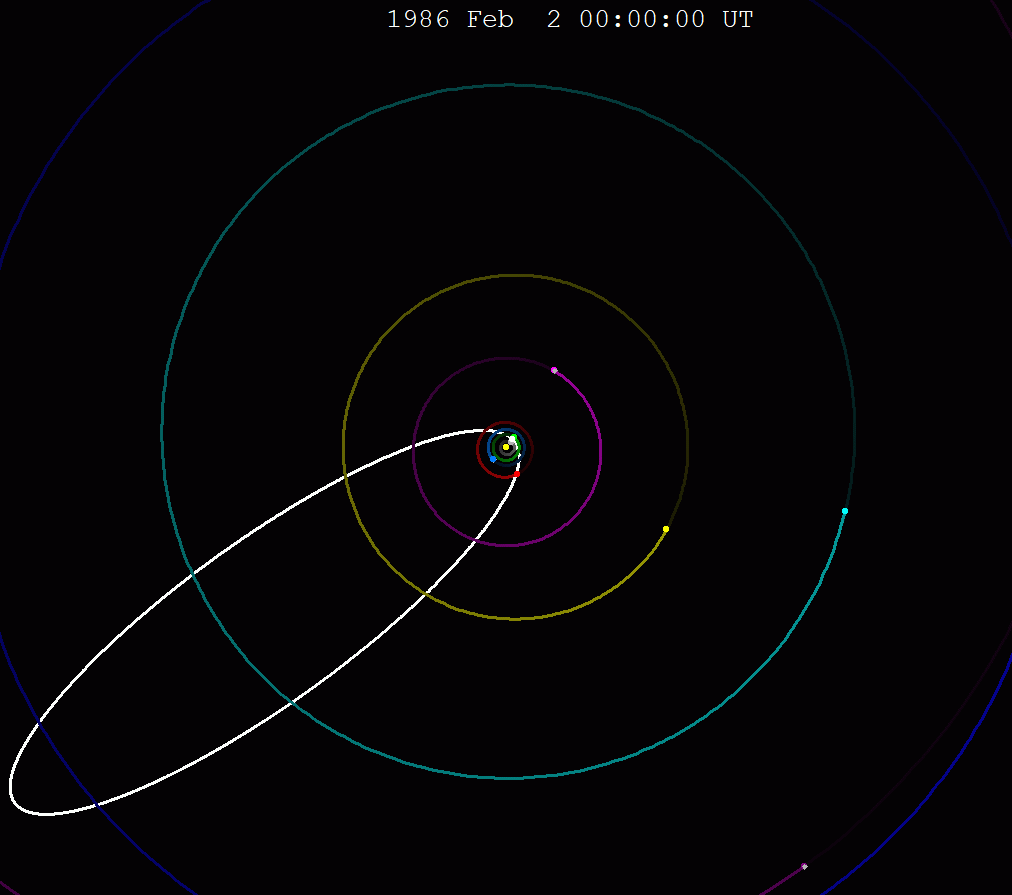Postcards from Equanimity #013
“Wandering the immeasurable”, homage to our journey in discoveries in Physics so far, and those still to come. CERN, France.
Between life and death there is a library,’ she said. And within that library, the shelves go on forever. Every book provides a chance to try another life. you could have lived. To see how things would be. if you had made other choices ... - The Midnight Library – Matt Haig
Here it is. A baker’s dozen. To all of you, the few and the brave readers of my missives, a thank you from the bottom of my heart for being a part of this journey so far. When I started, I suggested that I may write to you each week. Now I accept your thanks that I didn’t follow through on that threat. 😉
For me there is an ongoing evolution with every post. And my sincere hope is that to some extent it is true for you as well. Should I lose you in what may be a long post, allow me to say now, I have a favor to ask and an offer to make.
Favor: If you read this, and think someone else would like to read it, please share with them and/or share their email address with me so I may add them to the list. Or visit at www.jeevun.com/blog
Offer: I am exploring the human condition, living itself. If there is anything that keeps you curious, that you would want to read more about or share, please drop me a line. I would love prompts to explore as we keep this caravan going.
Onward. The opening quote above is from one of my reads from this year and easily one of my most favorites books of all times, The Midnight Library. I won’t spoil it for you, but it is the story of a young woman at life’s crossroads and what choices may lie ahead. This is a lovely treatment of the idea of dealing with who we are so we can become who we want to be. If you haven’t read it, please consider doing so; this book has resonated with many in my social circles. If you have read it, I’d love to hear from you on what it meant to you.
As many of you may know I certified as a life coach in mid-2021, my personal angle at sublimation of the calamity of COVID. I also turned 50 this year. Through my readings and contemplations, I have arrived on this understanding about age: you need sufficient lived experience in any given arena, and certainly life overall, before you can start figuring out what it’s all about. I dare not wax philosophical on the math of it, but I guess that’s why there is a mid-life, which should be a point of assessment and hopefully not a crisis. May our past inform our future but not dictate it.
The other related thing I sort of knew already but intend to start putting some deliberate weight behind for general consumption is that in the realm of causality we humans often tend to look for a singular answer. Maybe it is our schooling or maybe the heuristics that come from the simpler cause and effect experiences of early life. But when you study philosophy and religion even at a topical level you may start to see common themes of duality, trinity, and more numerical combinations. So my evolving state of thought is that nearly everything lives on a spectrum, not in singular states. Most of us are capable of thinking about 11 things at a time, and at other times of blocking everything out to focus on something that we enjoy. Similarly, in the realm of opinion, there is no one truth but the unique perspectives of each of us from where life finds us. We have many thoughts seemingly at the same time and sometimes even in conflict to each other. They are kept sorted by relying on context. (Content matters but context is king!). As thoughts lead to feelings, thus we are able to experience many feelings, even opposing ones, at the same time.
So, try an exercise. Outside of hard sciences, and established matters like how to drive your car or bike, give some deliberate space to the idea of multiples. I say deliberate because you do it already maybe without thinking about it. e.g., you go to work and deal with problems while also looking forward to going home and enjoying a show or time with family. It is as if we grow from seeing causality and outcomes as dots to lines then maybe at times as two (train) tracks running parallel but not merging due to irreconcilable aspects. Eventually, we can arrive at a point where this thoughtscape is like a loom with threads going in multiple dimensions in a plane with some fluff (distractions) flying above and below. That is the evolution of our intellectual lives; we are weavers at this loom, the masters of our dominion.
There are lessons in literature and social media about how to feel better or how to feel more in control. Some focus on unitasking, others on massive actions, yet others on various gamuts. To say that there is any one way that is the only way may be driven by marketing or agenda of a given author, but it doesn’t negate that you are capable of handling opposing emotions and conflicting views and need not discard parts of yourself to feel any which way by someone else’s measure. Yes, deep work requires focus on one thing and shallow work can be multitasked. You need not give up your authority as the loom weaver to satisfy someone else’s view of a linear or parallel outcome. Be you. Revel in your growth and trust your abilities.
I wrote a note some time ago where I mentioned I am in the bardo. And I said I would explore what that means to me. I can’t say I am ready to leave that construct but I can say that my state of mind about the experience has substantially shifted. As I reflect on the fact that a year ago I shared thoughts on how we see ourselves and our experiences in comparison to other humans, I want to end this post with this one lesson from my corner of the bardo.
It is in our nature to set expectations, attempt to accomplish them, and then sometimes to measure the outcomes. What has been a truth hidden in plain sight, perhaps laid bare by our pandemic driven focus on self-assessment and healing, is that more often than not we undervalue what we accomplish and overvalue what we think didn’t work out. Humans are loss averse, even at the risk of giving up some gains: we see what we did not accomplish as a loss. Which brings me to another wonderful book that landed in my lap this year, The Gap and The Gain. The authors explore how we see progress, or lack thereof, in our life. One of their conclusion is about why we set goals in the first place:
I don't think we set and achieve goals in an effort to become happy. We do it because we are happy and want to expand our happiness.
Dan Sullivan, The Gap and The Gain: The High Achievers' Guide to Happiness, Confidence, and Success
So if we set out to feel accomplished what is a more balanced approach to dealing with unmet ones? The authors share another conclusion:
The way to measure your progress is backward against where you started, not against your ideal.” —Dan Sullivan
Benjamin Hardy, The Gap and The Gain: The High Achievers' Guide to Happiness, Confidence, and Success
The image below addresses the notion of ‘accomplishment’ in the context of circumstance and timeline. We are much more likely to use the ‘common narrative’ where at the end of our effort we may find ourselves disappointed by a goal not met. But we must ‘shift the narrative’ and start to see with a wider lens that more often than not we are farther along from where we started, even if we didn’t make the initially set goal. This progress is the basis for future growth just as it can be the basis of equanimity.
December is the heart of winter holidays in our part of the world. The ending of the year, or the holidays, will bring a natural time to reflect on what the year has meant to us. I hope you will be able to give yourself the grace of a fair timeline with respect to your self-assessment of achievement.
I will take my leave with a joke, which stresses the simplicity of solutions we sometimes don’t see until we change our perspective.
How do you stop a bull from charging?!?
Well… you cancel its credit card.
Happy holidays my friends. ’Til next time.
P.S. Again, if you enjoyed these reads, please share far and wide, or direct your friends to reach out to me so I may share future postcards with them as well. I would love to add more people to our tribe. They can email me at akash@jeevun.com Or you can direct them to this blog. 🙏🖖







